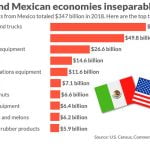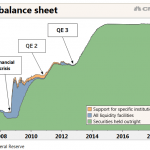
When you compare today’s employees to decades past, they are very different. The days of clocking in and out and getting a paycheck for doing repetitive work handed down from the Ivory Tower are practically over.
So what do today’s employees really want? And why do so many leave their managers? You can narrow it down to one short sentence:
They seek a meaningful experience at work and a supportive, collaborative environment that appeals to their sense of purpose and human emotions.
When they don’t get that at your organization, they’ll look for it elsewhere. There’s something wonderfully intrinsic about the human design that demands more than most companies are willing to offer–the need for more work-life balance, more personal wellbeing, and more human development.
Clearly, in a tight labor market like the one we are in now, employers can’t mess around with losing their best people. In Gallup’s latest State of the American Workplace report, “63 percent of employees believe it is ‘very likely’ or ‘somewhat likely’ that they could find a job as good as the one they have.”
Adding fuel to the fire, “51 percent of currently employed workers say they are actively looking for a new job or watching for openings,” according to Gallup’s report.
Think of employees more like customers.
We have moved into an era where forward-thinking companies–many of them startups–value the employee ahead of the customer. Leaders who serve their employees’ needs first realize the enormous business impact that comes with having employees showing up every day enthusiastic and involved in their work.
To maximize the employee experience, Gallup has extensively studied and foundthat there are 5 core needs at the heart of every employee.
1. The manager-employee relationship.
Managers are the most critical pieces of the puzzle to affect how employees are engaged and developed. Why is that the case? Gallup found that the manager alone accounts for
70 percent of the variance in team engagement. Therefore, managers are in a great position to continually help the employee see their current value and future in the organization. This is why identifying and developing great people-managers should be a top priority.
2. The employee’s role.
In workplaces everywhere, employees don’t fully understand what is expected of them in their work roles. In fact, only 41 percent of employees “strongly agree” that their job description aligns well with the work they are asked to do. To fix this, employees must be absolutely clear about their job responsibilities from the get-go, typically defined during role orientation, and redefined consistently through goal setting, and frequent feedback and performance reviews.
3. The team.
Gallup has found that the value of “respect” is crucial in developing team trust, which then leads to team members feeling valued and performing at a high level. Since only 12 percent of employees “strongly agree” that their organization does a great job of onboarding, it is especially critical that employees “feel valued” at the onboarding stage of the employee lifecycle. This is when new employees begin to identify trusted partners that will bring out the best in them throughout their tenure.
4. The workspace.
The physical environment matters more than ever as a “psychological necessity for getting work done.” And a well-designed and supportive workspace tailored to meet individual needs–whether an open collaborative area or private rooms or both–gives employees the freedom to work in the ways they feel is best. Gallup adds that “light, temperature, ergonomics, noise, and distractions are other factors in the employee experience.”
5. The employee’s well-being.
Finally, it’s universal across the board that employees must love what they do and do what they love. That means employers must set the conditions necessary to bring out employees’ energy, enthusiasm, and pride for what they do personally and professionally. Gallup identifies five elements of well-being that must be on the radar of employers serious about maximizing the employee experience: purpose, social, financial, physical and community.
[“source=inc”]




